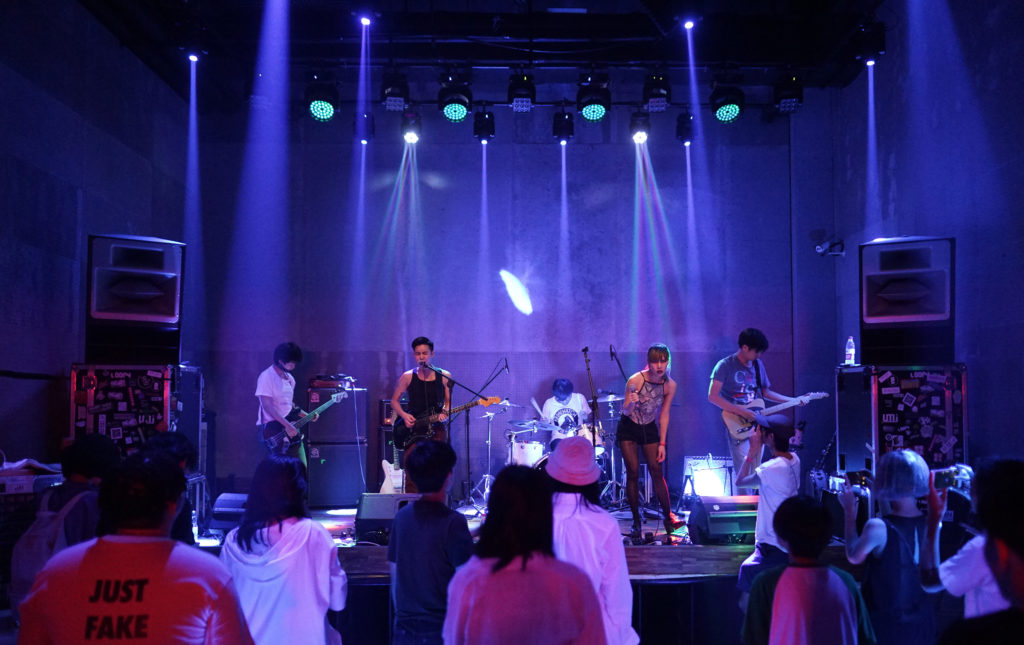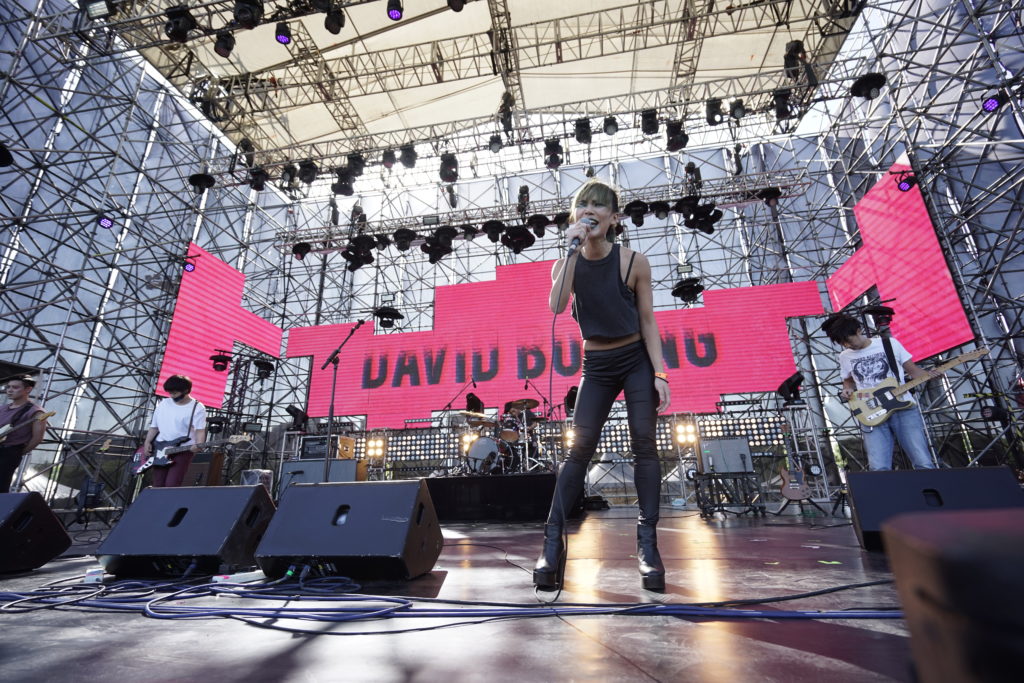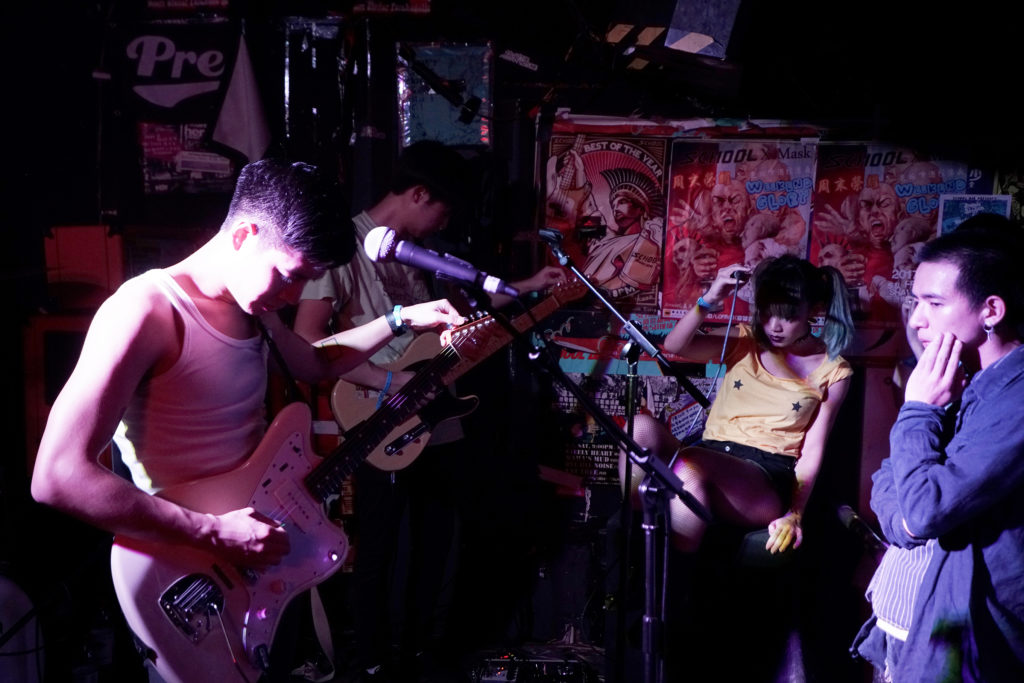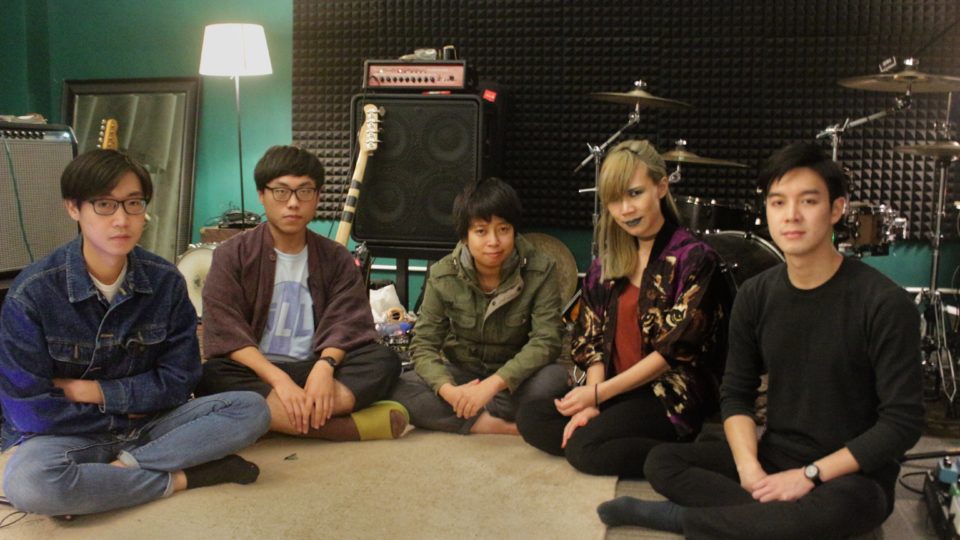David Boring’s previous performances have been described as “completely unpredictable and destructive” where “bodies and instruments are flailing everywhere”. To which drummer Stan Chik jokes: “I don’t think it’s destructive enough to be honest.”
Unpredictable is certainly what to expect when the post-punk band take to the stage on Saturday for their first appearance at Clockenflap. Even vocalist Janice Lau does not know what the band are going to do when their set begins.
She says while some bands to go for a “certain image” or try to craft an “aesthetic or brand”, David Boring likes to turn on the amplifiers and see what happens.
“All the destruction or the violence that comes to us, it’s quite natural for us, so I think it’s also fun for the audience because they don’t really know what to expect.”
The band — comprising Lau (vocals), Jason Cheung (guitar), Panicube (bass), Dave Cheng (guitar), and Chik (drums) — met as students at the University of Hong Kong, and have been a staple of the city’s underground music scene since they formed in 2013.

It’s hard to describe the music of David Boring, although the band are largely referred to as a post-punk bank, Lau says they don’t adhere to labels.
“A lot of people label us that because they find things in our sound that reminds them of post-punk, but that’s not something we call ourselves,” she says.
Listen to David Boring’s album in full and you can hear a number of other influences including no wave, noise rock, and experimental rock. Cheung even cites Radiohead as a big influence.
This interesting mix, from melodic songs to angry aggressive tunes, can be a tense experience for any listener, and Cheung says the band can spend months writing individual songs.
He explains this is partly due to a clash of personalities, preferences, and how each band member defines good music, adding: “These are the tensions that happen all the time.”
The result of these clashing personalities over song-writing choices led to their first studio album Unnatural Objects and their Humans earlier this year.
The album, which was three years in the making, is unmistakably about the Hong Kong experience.
For instance, the track Brian Emo is about the wave of student suicides, and Smog is about the day police used tear gas against protestors in September 2014, which marked the start of the 79-day Occupy protests.
However, Lau says that was not the intention. “It’s not meant to be a local album,” she says, explaining that, while some songs are indeed inspired by events in Hong Kong, the overriding themes are much broader.
Indeed, other songs on the album such as Loosefuck (about the patriarchy) to Susie Exciting (on mental illness) are problems hardly unique to Hong Kong.
“All these [issues] are all very global,” she says.

Although they have established themselves in Hong Kong’s underground music scene, coming up to the surface is difficult for a band performing in a city where the audience for post-punk music is quite small.
Lau attributes this to a general attitude that mainstream music must have certain presentable qualities, which tend towards “easy listening”.
“Anyone who goes against that mainstream aesthetic, they tend to stay underground or they tend to stay a bit more obscure, and I think the majority of these people, these bands, they are quite happy not being super popular, which is quite healthy.”
Although the quintet will be playing to a much larger audience this weekend, the band prefer playing on rooftops, terraces, and smaller indie live houses like underground club XXX (triple x), and the recently shuttered Hidden Agenda.
Unsurprisingly, the venue’s demise was disappointing for the band and a huge blow to the broader scene.
“For me the third generation of Hidden Agenda was always a special place,” says Cheung.
“It was the venue that we played quite a number of times and where I saw some of my first local indie shows, and around the time when we were starting off, there were quite a lot of opportunities for even smaller bands to perform however small the gig is.
“But in recent years the number of venues is closing down, so does the number of local shows, so it’s even harder for smaller bands to actually just perform, let alone break into [the indie music scene].”
But despite this, the band still see some hope for the city’s live music scene.
“Nowadays Hong Kong indie bands go and hold a gig in some band rooms, or the roof, or the terrace, some kind of space. It looks like everything can happen somewhere you don’t know,” Panicube says.

Photos provided by David Boring.
Clockenflap starts today and runs Nov. 17, 18 and 19 at Hong Kong’s Central Harbourfront. Acts this year include Massive Attack, The Prodigy, Feist, Stormzy, Kaiser Chiefs, MØ, Jungle and many more.
David Boring will be performing on the Yourmum Stage, Saturday, 4:00pm – 4:45pm
Check out the full Clockenflap schedule here, and check out our guide on who to watch out for at the festival here.




